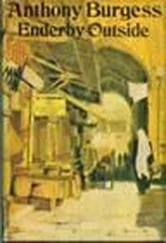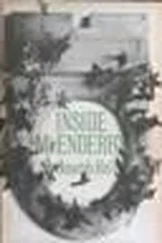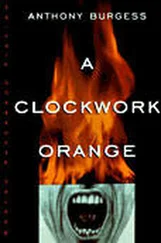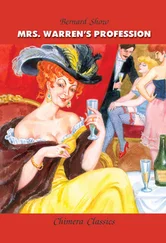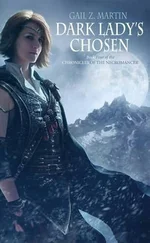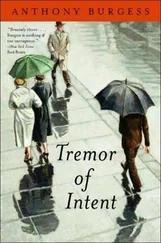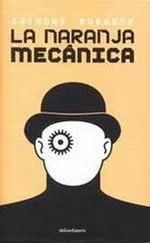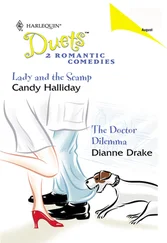For some reason that needed a black voice, altogether male and fully ballsed, but it had to be the fag Oldfellow transformed in vision to a Will with a chest like twin kettledrums. And for her?
God knew, she was Cleopatrician enough as they boarded the plane for Chicago, she in plain moulded emerald dress with seagreen cloak that had flared in the wind as they left the taxi, he in cap and old overcoat, blinking without glasses. At Chicago they got on an aircraft bound for Raleigh, named for the father of smoking. Smoking, she said:
"Now, honey, you can talk."
"What about?"
"You know what about, kid."
Enderby sighed like furnace. "You mustn't," he said, "consider me to be a sexless recluse advancing into grey middle age. I live alone after a brief failed marriage. Unconsummated, indeed. She was a woman of great chic and skill and ambition, and she wanted to be married to a poet. Then she became well known as a manager of pop groups and similar abominations."
She looked at him wideeyed, new angle on him. "Who?"
"A certain Vesta Bainbridge who became a certain Vesta Wittgenstein."
"Oh Jesus, her I knew. She wanted to manage me one time. She was a bitch, one hundred per cent and no discount."
"Well, there you are then. The muse was very angry about it and went away. I couldn't write. I attempted suicide. Then I was rehabilitated, as they put it. Then she came back."
"Who came back? La Wittgenstein?"
"No, the muse." Enderby looked very gravely at the smoking goddess beside him, a meanly framed vista of American bad weather beyond her. "Personification, if you like. Writing poetry isn't like adding up figures. There's a force outside that gets inside and starts dictating. Easier to call it the muse. Her, I mean. She can be very jealous. She's gone for good now, I think. So much and no more is granted to a poet. I've published my Collected Poems, to no applause. What I do in that bloody theatre or theater is nothing. Pure craft. Not so pure either. I hope I'm not boring you."
"No, honey. You just keep straight on."
"My feelings towards ah your divine self, then. With a woman a man has to effect a dichotomy. You know the word?"
"Oh, come on."
"Sorry, you keep assuming this Topsy act, the slangy front to the world, the virtues of deprivation and so on. What I mean is. Well, it was you who mentioned the noumenon and the phenomenon aspect of things. I take your image to bed with me and devour it growling. Need, you know, the filling up of the wells. Disgusting but ineluctable. A private indeed privy matter. But behind that is you, and yet not behind that, because your body is no mask. And if I say love -" The aircraft responded to that dangerous word by meeting clear air turbulence. "- I mean, what the hell can you do with love except cleanse yourself of it by debasing the image to a lust object? I mean, what do I say, I, an ugly ageing man whose skin was never washed in the sun's glory, running a beach restaurant in Morocco, all all alone? Marry me, prove that marriage can work, companionship and all the rest of it, let the love derived from total knowledge rub off onto the image and make it no longer an object of concupiscence, do I say that? Of course not. I suppose," he said heavily, "I wish to invoke a special relationship, impossible of course."
"Yeah yeah yeah. Quite a speech."
"And what," Enderby asked, "do you do about love? If I may ask."
"I tried it. Now I have my career. Not simple then, is it? You don't just want to get laid."
"Getting laid," he said, "solves no problems. Love is a bloody nuisance." CAT agreed. "And we have the business of this damned musical play to make matters worse. Because you're not Cleopatra. Divine, beautiful, heartstopping, a miracle of flesh and bone and air and fire but not Cleopatra. You see that?"
"Yeah, baby," sighing like smaller furnace, "I know. I'm me. But I'm being paid to be me. Me singing songs and – what was the expression you used? Wagging my divine buttocks, yeah."
"And that fag Oldfellow as you rightly call him is not Shakespeare or Antony either. And I'm stuck in this thing, mired in it, and I can't get out. Look, that damned thing's on fire."
"Port engine? Yeah, it does that sometimes. How's about my songs?"
"It's still on fire. No, it's gone out now. No, it's started again. Saw me getting on this plane, giving me warning. Leave his dust alone. It's gone out now. No, it's not. Yes, it has."
"Songs."
"One song. You can be Cleopatra in a kind of dumbshow, Will's vision. Then he gets drunk with Ben Jonson -"
"You're crazy."
"Not your brother, the other one. He dies of a sweating fit, and he sees you for one last time in his delirium. Love of his life. Inspiration. The future. Nature. Sex. Libido. The dark unconscious." Enderby kept his eyes warily on that port engine. It did not reflare. "The trouble is the words. The trouble is that that bastard fag Silversmith doesn't understand prosody. The trouble is going to be the music. One song. Summing it all up."
"To be or not to be," she said. "Pure what's the word ontology." Enderby looked at her with some awe. "To be or not to be, what is it you want of me, what am I to you except the one thing true that fades, evades, lives in the shades or a world unborn shorn of reality, no actuality, a dream, a gleam of gold unmined you'll never find." Enderby wished now heartily to embrace her: what she was improvising complete with tune was, God knew, terrible enough but it would get the whole damn burden cleared off his shoulders, the godless task finished. But they now had to fasten seatbelts and prepare for landing. A lot of cold flat green. "I did some Creative Writing at Chapel Hill," she explained. When they were standing in the aisle to get out, following and followed by blacks and rednecks, none of any great beauty or distinction, he did attempt a tentative embrace. She was a slim girl, not much to get hold of. "Hey, hey," she said.
She drove them both expertly in a hired Avis Studebaker or something down what seemed to be dirt roads and then a highway towards the town of Chapel Hill, where also was the first of the United States state universities. Enderby did not know what to expect of her momma's house. No log cabin, certainly, redolent of chitterlings. It turned out to be a nice little detached dwelling in pink brick with a flower garden, just behind a hotel called the Carolina Inn. There was an aged black hoeing.
"Hi, Uncle Joe."
He dropped his hoe in a clump of dead morning glories or something and went "Wha howya hawa wah haha yeah" or something, chuckling his grey black head off. Then he came to the car to start taking bags out of the boot, trunk they said here, making to Enderby a similar speech, not however chuckling. "Hi ah," Enderby offered, straightening his tie, which, he knew, was royal blue with gold spots. And then he followed her up steps and into a nice little hallway smelling of aerosol magnolias. And then.
Well, he lay awake that night of Christmas Eve digesting his welcome, expressed best in many mugs of mahogany tea, also a homecooked meatloaf. Her momma a welcoming woman with grey curls, old, she the divine one a product of ageing loins, in a royal blue sack of a gown with gold spots, her body gross with the enforced farinacity of long deprivation. Lemme looka you Reverend, with sharp old eyes blurred by a milky meniscus. You faaaaar from home for de bin o de Lord Jesus, and so on. An upright piano and on it photographs of family large, dispersed, done bad to by whites, Ben and little May grinning at making grade, the father long dead in bogey accident on railroad. The kids, Bobby and Nelson, televisiongawpers like other kids, showing no enthusiasm at sight of festive square packages from Indianapolis. You take dem walkin Reverend while me and ma daughter has lil talk. So Enderby had to walk the main street of Chapel Hill, empty of college students because the vacation was on, with a little black kid in either hand. This was not something he had foreseen. The kids rolled eyes of suspicion up at him but also demanded Cokes and ice cream sodas. They also demanded to be taken to one of the town's two cinemas, where a Swedish travesty of Fanny Hill was being shown. No kids allowed, he told them. He walked them back very wearily and at first could not find the house, nor could they, but at length saw the gardener wrenching up plantains and growling some ancient song of bondage. He and the kids had a brief colloquy that Enderby could not understand, and then the three of them went in. April Elgar had turned into May Johnson, in sloppy dressing gown and old mules, hair disarrayed and a daughterly whine. Enderby one of the family then.
Читать дальше

